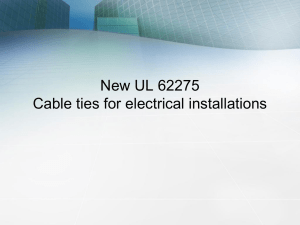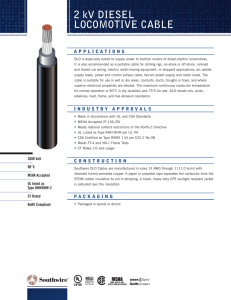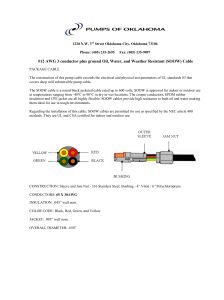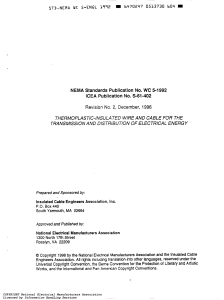Application Guide 4A-Cable Ties_Temperature
advertisement
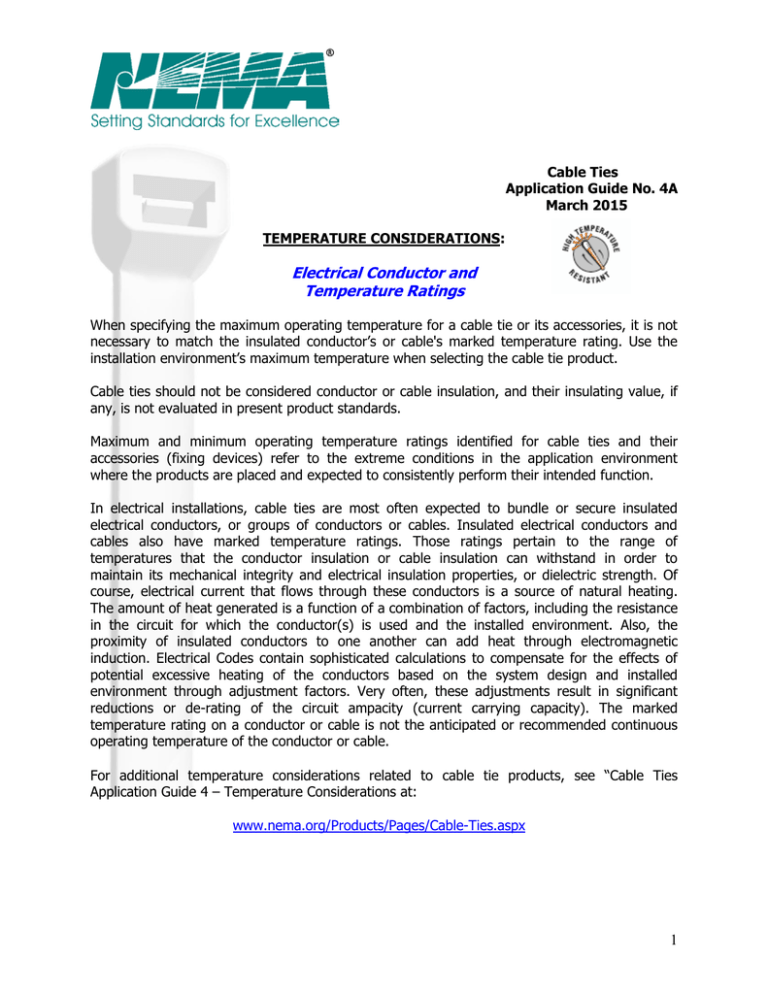
Cable Ties Application Guide No. 4A March 2015 TEMPERATURE CONSIDERATIONS: Electrical Conductor and Temperature Ratings When specifying the maximum operating temperature for a cable tie or its accessories, it is not necessary to match the insulated conductor’s or cable's marked temperature rating. Use the installation environment’s maximum temperature when selecting the cable tie product. Cable ties should not be considered conductor or cable insulation, and their insulating value, if any, is not evaluated in present product standards. Maximum and minimum operating temperature ratings identified for cable ties and their accessories (fixing devices) refer to the extreme conditions in the application environment where the products are placed and expected to consistently perform their intended function. In electrical installations, cable ties are most often expected to bundle or secure insulated electrical conductors, or groups of conductors or cables. Insulated electrical conductors and cables also have marked temperature ratings. Those ratings pertain to the range of temperatures that the conductor insulation or cable insulation can withstand in order to maintain its mechanical integrity and electrical insulation properties, or dielectric strength. Of course, electrical current that flows through these conductors is a source of natural heating. The amount of heat generated is a function of a combination of factors, including the resistance in the circuit for which the conductor(s) is used and the installed environment. Also, the proximity of insulated conductors to one another can add heat through electromagnetic induction. Electrical Codes contain sophisticated calculations to compensate for the effects of potential excessive heating of the conductors based on the system design and installed environment through adjustment factors. Very often, these adjustments result in significant reductions or de-rating of the circuit ampacity (current carrying capacity). The marked temperature rating on a conductor or cable is not the anticipated or recommended continuous operating temperature of the conductor or cable. For additional temperature considerations related to cable tie products, see “Cable Ties Application Guide 4 – Temperature Considerations at: www.nema.org/Products/Pages/Cable-Ties.aspx 1 DISCLAIMER The standards or guidelines presented in a NEMA standards publication are considered technically sound at the time they are approved for publication. They are not a substitute for a product seller’s or user’s own judgment with respect to the particular product referenced in the standard or guideline, and NEMA does not undertake to guarantee the performance of any individual manufacturer’s products by virtue of this standard or guide. Thus, NEMA expressly disclaims any responsibility for damages arising from the use, application, or reliance by others on the information contained in these standards or guidelines 2
